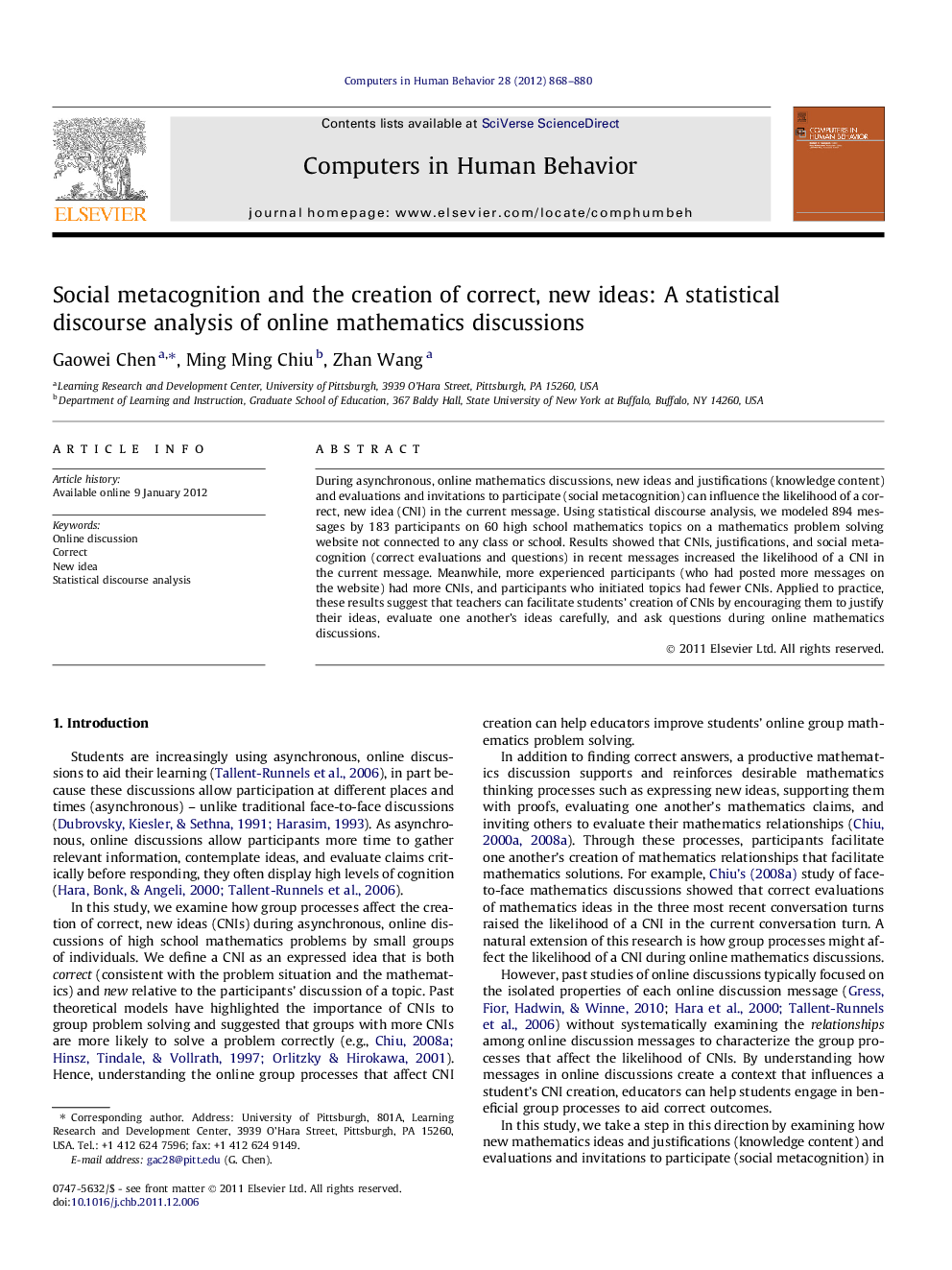| Article ID | Journal | Published Year | Pages | File Type |
|---|---|---|---|---|
| 351342 | Computers in Human Behavior | 2012 | 13 Pages |
During asynchronous, online mathematics discussions, new ideas and justifications (knowledge content) and evaluations and invitations to participate (social metacognition) can influence the likelihood of a correct, new idea (CNI) in the current message. Using statistical discourse analysis, we modeled 894 messages by 183 participants on 60 high school mathematics topics on a mathematics problem solving website not connected to any class or school. Results showed that CNIs, justifications, and social metacognition (correct evaluations and questions) in recent messages increased the likelihood of a CNI in the current message. Meanwhile, more experienced participants (who had posted more messages on the website) had more CNIs, and participants who initiated topics had fewer CNIs. Applied to practice, these results suggest that teachers can facilitate students’ creation of CNIs by encouraging them to justify their ideas, evaluate one another’s ideas carefully, and ask questions during online mathematics discussions.
► Recent messages can affect creation of correct, new ideas (CNIs) during online mathematics discussions. ► CNIs facilitated subsequent CNIs. ► Justifications were positively linked to CNIs. ► Correct evaluations of previous ideas were positively linked to CNIs. ► Questions facilitated subsequent CNIs.
